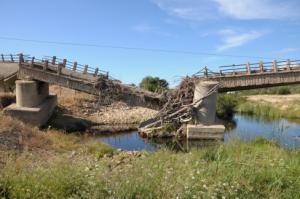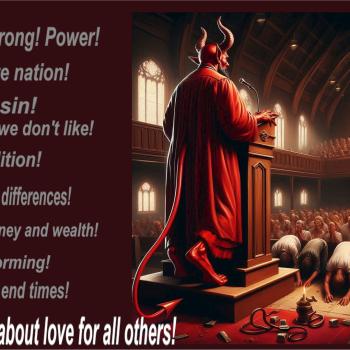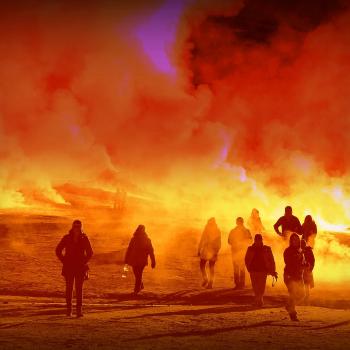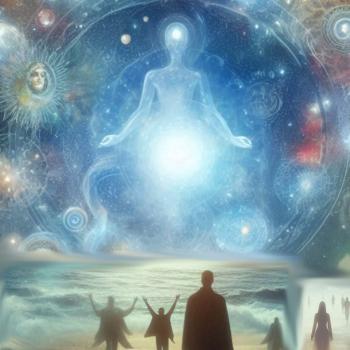New Era of Conscience and Change series
Prophecy in the Bible generally offered a message of hope to its hearers about the eventual defeat of its enemies. It called people back to belief and obedience. A very limited amount of it talked about the end of all things. But generally “the end” being talked about is the end of a time of suffering or end of an era.
Jesus and the Apostle John talked about the end of the age. Some, looking through a Christian only lens, think it’s a thousand-year era of Christianity that comes to a close … right about now. Some think it refers to personal lives. But like all Biblical prophecy it was much more immediate. History isn’t nearly as much fun as captivating horror stories of the future.

Jesus on the end of the age
First we’ll look at Jesus and his words about the end of the age and what actually happened. The Apostle John accompanied Jesus and heard what was to happen. Jesus referred to coming events that were to happen within the Apostle’s lifetimes. They all expected them. John, who lived longer than the others, got to witness them. He wrote about these in his letters and the Book of Revelation.
For example, Jesus said of the end of Jerusalem in Luke 19: 43,44 (NASB): “For the days will come upon you when your enemies will throw up a barricade against you, and surround you and hem you in on every side, and they will level you to the ground and your children within you, and they will not leave in you one stone upon another, because you did not recognize the time of your visitation.”
Jesus then said of the destruction of the Temple in Mark 13: 1,2 (NASB): “As He was going out of the temple, one of His disciples said to Him, “Teacher, behold what wonderful stones and what wonderful buildings!” And Jesus said to him, “Do you see these great buildings? Not one stone will be left upon another which will not be torn down.””
Mark, who accompanied Jesus and the Apostles and wrote things down, tells us that Jesus’ followers wondered when this would happen.
Jesus said, “When you hear of wars and rumors of wars, do not be frightened; those things must take place; but that is not yet the end. For nation will rise up against nation, and kingdom against kingdom; there will be earthquakes in various places; there will also be famines. These things are merely the beginning of birth pangs. “But be on your guard; for they will deliver you to the courts, and you will be flogged in the synagogues, and you will stand before governors and kings for My sake, as a testimony to them.”
Things were going to get very bad for the people. Jesus said to the people in Luke 23: 8-30 (NASB): “But Jesus turning to them said, “Daughters of Jerusalem, stop weeping for Me, but weep for yourselves and for your children. For behold, the days are coming when they will say, ‘Blessed are the barren, and the wombs that never bore, and the breasts that never nursed.’ Then they will begin to say to the mountains, ‘Fall on us,’ and to the hills, ‘Cover us.’ For if they do these things when the tree is green, what will happen when it is dry?””
Was Jesus just being dramatic?
No, all of these things actually happened, and the Apostle John witnessed most of it. Jesus told them they would be persecuted for his purpose (sake), and it’s true that everywhere they went some Jews and the Romans persecuted them and exiled them.
The Romans were fed up with the Zealot branch of Judaism that wanted to overthrow the Romans and constantly attacked them. So in 70 CE they destroyed the Jewish Temple in Jerusalem, their only Temple. The Apostle John was aware. But by 128 BCE the Romans had all they could take of the Jews so they chased them from the land and totally destroyed Jerusalem.
Many Christians, tipped off by Jesus’ prophetic words, fled to the town of Pella and other safe places in 66 CE just prior to the Temple’s destruction.
Jesus said people would flee to the mountains and ask the mountains to cover them. During the destruction of the Temple, many Jews fled to Masada, just as Jesus said, where the Romans laid siege and eventually killed man, woman, and child. Others fled the country. In 128 BCE, 30 years after John, all Jews and Christians fled the country or were driven out by the Romans.
Jerusalem was so damaged in 128 CE that it was unrecognizable as a town that once had inhabitants, and it was renamed by the Romans as a Palestinian town. Nearly 600,000 Jews were killed and over 1,000 towns and villages were razed to the ground. The practice of the Mosaic Law was prohibited and the sacred scrolls were burned. The Jews were scattered to the four corners of the world where they remained an example to others.
– Drive Through History.
These monstrous happenings, Jesus said, were the birth pangs of the new age. It was the end of the prominence of Judaism in that age. It was the beginning of Christianity.
Take Home Points
Jesus came to the Jews and most of the things he said were to the Jews. He talked about the end of the age to them. It was going to be a horrible time of mass persecution and death. He gave no specific time but it was to last for a hundred years for the Jews during which their land, people, Temple, and religion would be destroyed and some remnants scattered to the wind.
Jesus’ followers (Christians) watched for the signs of this happening. When the Romans came down hard on the Jews, just before the destruction of the Temple, many of them left to safe territories.
The Romans regarded Christians as just another Jewish sect, and continued persecuting and repressing them for another two hundred years. Despite this Christianity grew rapidly, first as a Jewish sect that attracted non-Jews, then later as a religion of its own.
Jesus ushered in change. He knew that Judaism was doomed and that belief in the One God would continue in the form of Christianity.
The standard of belief and conduct for Christianity is love, and it’s not an option or usurped by some idea about “Law.” Our conduct is a matter of conscience for each of us to wrestle with. If in doubt, apply love.
There is no law more important than that of our own conscience. If we violate our conscience we condemn ourselves, and we find it harder to forgive ourselves than others.
_____________________________
Additional Resources
How to Keep Millennials Engaged in Church – on Patheos
What Is Meant by Truth? – on Patheos
Tabernacle of Hate – False Religion – on Patheos
10 Reforms Christianity Needs to Make Right Now – on Patheos
________________________
The standard of belief and conduct for Christianity is love. Legal standard.
________________________
If I’ve challenged your thinking, I’ve done my job.
If you find these articles intriguing, please consider joining the mailing list.
___________________
Our answer is God. God’s answer is us. Together we make the world better.
– Dorian














